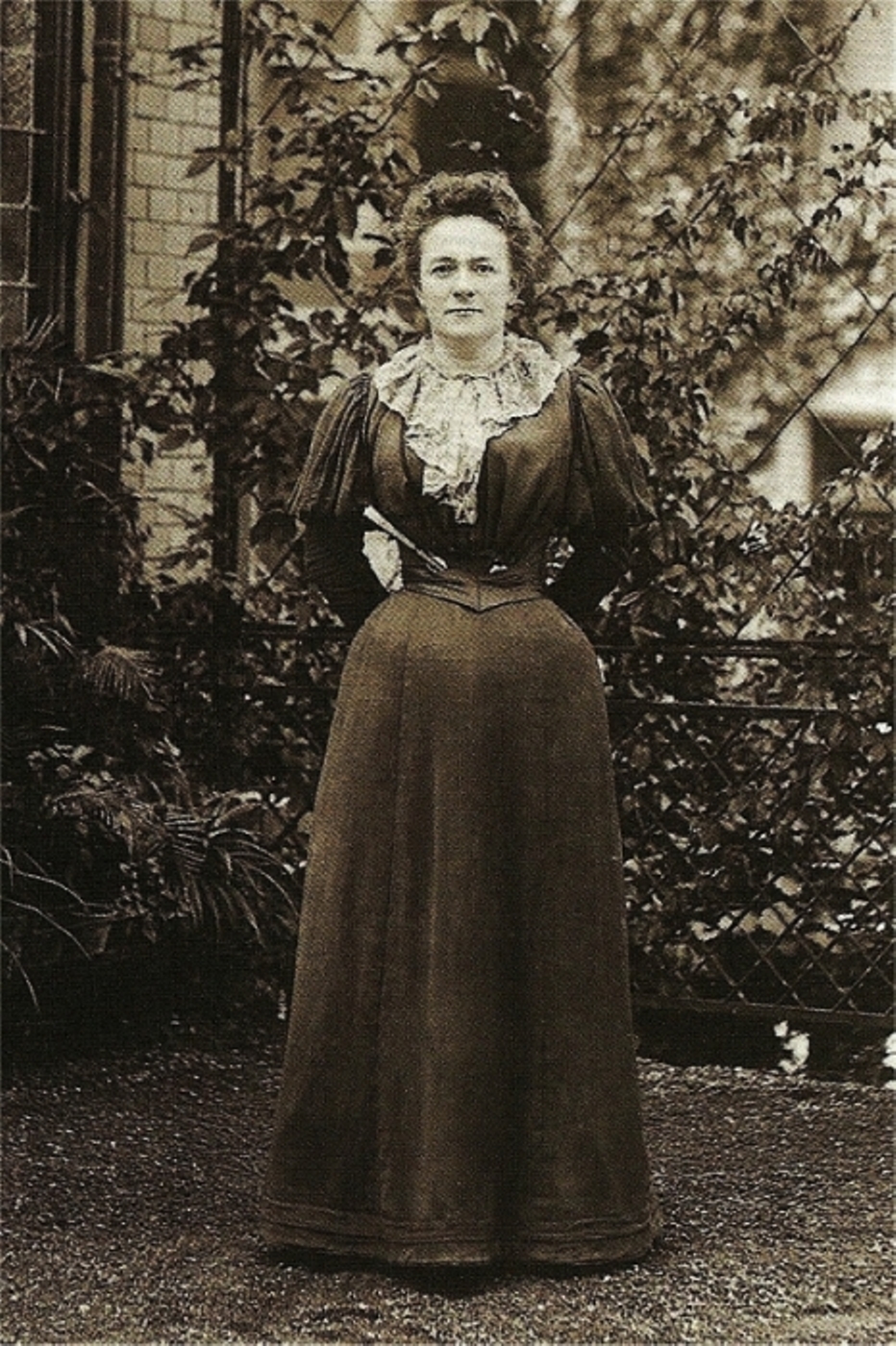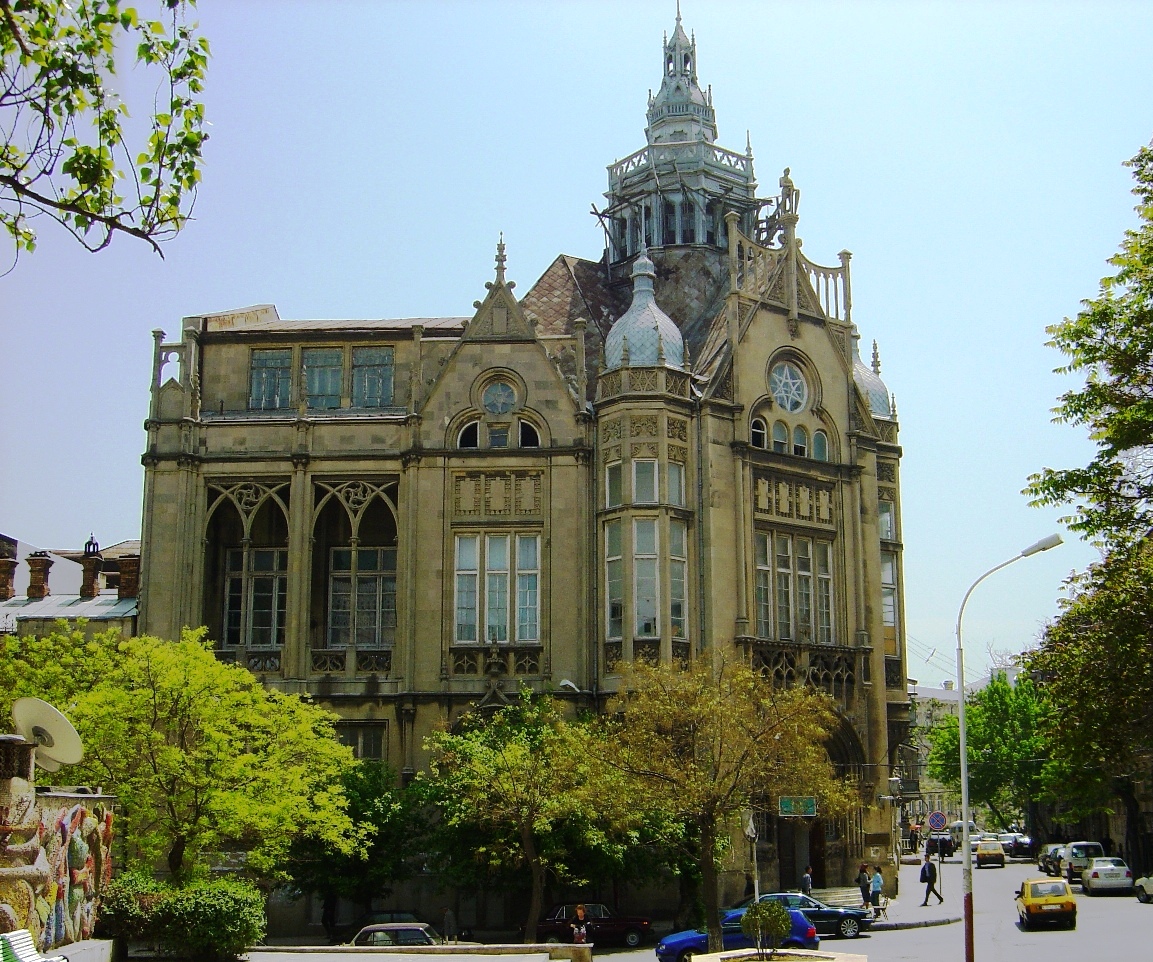|
Ali Bayramov Club
The Ali Bayramov Club was the first club for women in Baku, Azerbaijan. The Club offered a variety of vocational skills and training to women, in additional to cultural and leisure activities. Its main focus was campaigning for women's unveiling and literacy. History Origins The Ali Bayramov Women's Club, active in Baku and the surrounding regions, was opened in 1920 under the direction of the People's Commissariat for Education. The Club was originally founded as a literacy and sewing circle by Jeyran Bayramova with the aim of enlightening Azeri women. The Club was named after her brother-in-law whom she married after her sister's death, Ali Bayramov, who had encouraged her educational pursuits when her parents had not. Ali Bayramov, a leading Azeri Bolshevik, encouraged his wife to be active in the communist women's movement. Bayramova first proposed the club to her school friends during her husband's funeral shortly after his death in March 1920. The club aimed to at ... [...More Info...] [...Related Items...] OR: [Wikipedia] [Google] [Baidu] |
Communist Party Of The Soviet Union
" Hymn of the Bolshevik Party" , headquarters = 4 Staraya Square, Moscow , general_secretary = Vladimir Lenin (first)Mikhail Gorbachev (last) , founded = , banned = , founder = Vladimir Lenin , newspaper = '' Pravda'' , position = Far-left , international = , religion = State Atheism , predecessor = Bolshevik faction of the RSDLP , successor = UCP–CPSU , youth_wing = Little OctobristsKomsomol , wing1 = Young Pioneers , wing1_title = Pioneer wing , affiliation1_title = , affiliation1 = Bloc of Communists and Non-Partisans (1936–1991) , membership = 19,487,822 (early 1989 ) , ideology = , colours = Red , country = the Soviet Union The Communist Party of the Soviet Union (CPSU),; abbreviated in Russian as or also known by various other names during its history, was the founding and ruling party of the Sovi ... [...More Info...] [...Related Items...] OR: [Wikipedia] [Google] [Baidu] |
Organizations Based In Baku
An organization or organisation (Commonwealth English; see spelling differences), is an entity—such as a company, an institution, or an association—comprising one or more people and having a particular purpose. The word is derived from the Greek word ''organon'', which means tool or instrument, musical instrument, and organ. Types There are a variety of legal types of organizations, including corporations, governments, non-governmental organizations, political organizations, international organizations, armed forces, charities, not-for-profit corporations, partnerships, cooperatives, and educational institutions, etc. A hybrid organization is a body that operates in both the public sector and the private sector simultaneously, fulfilling public duties and developing commercial market activities. A voluntary association is an organization consisting of volunteers. Such organizations may be able to operate without legal formalities, depending on jurisdiction, inc ... [...More Info...] [...Related Items...] OR: [Wikipedia] [Google] [Baidu] |
1920 Establishments In Azerbaijan
Nineteen or 19 may refer to: * 19 (number), the natural number following 18 and preceding 20 * one of the years 19 BC, AD 19, 1919, 2019 Films * ''19'' (film), a 2001 Japanese film * ''Nineteen'' (film), a 1987 science fiction film Music * 19 (band), a Japanese pop music duo Albums * ''19'' (Adele album), 2008 * ''19'', a 2003 album by Alsou * ''19'', a 2006 album by Evan Yo * ''19'', a 2018 album by MHD * ''19'', one half of the double album ''63/19'' by Kool A.D. * '' Number Nineteen'', a 1971 album by American jazz pianist Mal Waldron * ''XIX'' (EP), a 2019 EP by 1the9 Songs * "19" (song), a 1985 song by British musician Paul Hardcastle. * "Nineteen", a song by Bad4Good from the 1992 album ''Refugee'' * "Nineteen", a song by Karma to Burn from the 2001 album ''Almost Heathen''. * "Nineteen" (song), a 2007 song by American singer Billy Ray Cyrus. * "Nineteen", a song by Tegan and Sara from the 2007 album '' The Con''. * "XIX" (song), a 2014 song by Slipk ... [...More Info...] [...Related Items...] OR: [Wikipedia] [Google] [Baidu] |
Women's Organizations Based In Azerbaijan
A woman is an adult female human. Prior to adulthood, a female human is referred to as a girl (a female child or adolescent). The plural ''women'' is sometimes used in certain phrases such as "women's rights" to denote female humans regardless of age. Typically, women inherit a pair of X chromosomes, one from each parent, and are capable of pregnancy and giving birth from puberty until menopause. More generally, sex differentiation of the female fetus is governed by the lack of a present, or functioning, SRY-gene on either one of the respective sex chromosomes. Female anatomy is distinguished from male anatomy by the female reproductive system, which includes the ovaries, fallopian tubes, uterus, vagina, and vulva. A fully developed woman generally has a wider pelvis, broader hips, and larger breasts than an adult man. Women have significantly less facial and other body hair, have a higher body fat composition, and are on average shorter and less muscular than men. Throug ... [...More Info...] [...Related Items...] OR: [Wikipedia] [Google] [Baidu] |
Women's Clubs
The woman's club movement was a social movement that took place throughout the United States that established the idea that women had a moral duty and responsibility to transform public policy. While women's organizations had always been a part of United States history, it was not until the Progressive era that it came to be considered a movement. The first wave of the club movement during the progressive era was started by white, middle-class, Protestant women, and a second phase was led by African-American women. These clubs, most of which had started out as social and literary gatherings, eventually became a source of reform for various issues in the U.S. Both African-American and white women's clubs were involved with issues surrounding education, temperance, child labor, juvenile justice, legal reform, environmental protection, library creation and more. Women's clubs helped start many initiatives such as kindergartens and juvenile court systems. Later, women's clubs tackl ... [...More Info...] [...Related Items...] OR: [Wikipedia] [Google] [Baidu] |
Joseph Stalin
Joseph Vissarionovich Stalin (born Ioseb Besarionis dze Jughashvili; – 5 March 1953) was a Georgian revolutionary and Soviet political leader who led the Soviet Union from 1924 until his death in 1953. He held power as General Secretary of the Communist Party of the Soviet Union (1922–1952) and Chairman of the Council of Ministers of the Soviet Union (1941–1953). Initially governing the country as part of a collective leadership, he consolidated power to become a dictator by the 1930s. Ideologically adhering to the Leninist interpretation of Marxism, he formalised these ideas as Marxism–Leninism, while his own policies are called Stalinism. Born to a poor family in Gori in the Russian Empire (now Georgia), Stalin attended the Tbilisi Spiritual Seminary before joining the Marxist Russian Social Democratic Labour Party. He edited the party's newspaper, '' Pravda'', and raised funds for Vladimir Lenin's Bolshevik faction via robberies, kidnappings and p ... [...More Info...] [...Related Items...] OR: [Wikipedia] [Google] [Baidu] |
Clara Zetkin
Clara Zetkin (; ; ''née'' Eißner ; 5 July 1857 – 20 June 1933) was a German Marxist theorist, communist activist, and advocate for women's rights. Until 1917, she was active in the Social Democratic Party of Germany. She then joined the Independent Social Democratic Party of Germany (USPD) and its far-left wing, the Spartacist League. This later became the Communist Party of Germany (KPD), which she represented in the Reichstag during the Weimar Republic from 1920 to 1933. Biography Background and education Clara Josephine Eißner (Eissner) was born the eldest of three children in , a peasant village in Saxony, now part of the municipality Königshain-Wiederau. Her father, Gottfried Eissner, was a schoolmaster, church organist and a devout Protestant, while her mother, Josephine Vitale, had French roots, came from a middle-class family from Leipzig and was highly educated. In 1872, her family moved to Leipzig, where she was educated at the Leipzig Teachers’ Coll ... [...More Info...] [...Related Items...] OR: [Wikipedia] [Google] [Baidu] |
Palace Of Happiness
The Palace of Happiness ( az, Səadət Sarayı), currently also called Palace of Marriage Registrations and previously called Mukhtarov Palace, is a historic building in the center of Baku, Azerbaijan, built in Neo-Gothic style in the early 20th century. History The building was built by an Azerbaijani Oil Baron Murtuza Mukhtarov for his wife Liza-Khanum Tuganova. The designer was the Polish architect Józef Płoszko who had also built several other historic buildings in Baku in the early 20th century. Mukhtarov often took his wife Lisa Tuganova, who was of Ossetian origin and the daughter of the Russian General Tuganov, on expensive trips to Europe. During one of their trips to France, they came across a beautiful French Gothic building. Lisa, astonished by its architecture said: "How happy the tenants of this building must be." Mukhtarov did not reply but on his return to Baku, he ordered his people off to France to purchase blue prints of the building and bring them back ... [...More Info...] [...Related Items...] OR: [Wikipedia] [Google] [Baidu] |
Zhenotdel
The Zhenotdel (), the women's department of the Central Committee of the All-Russian Communist Party (Bolsheviks), was the section of the Russian Communist party devoted to women's affairs in the 1920s. It gave women in the Russian Revolution new opportunities until it was dissolved in 1930. History The Zhenotdel was established by two Russian feminist revolutionaries, Alexandra Kollontai and Inessa Armand, in 1919. It was devoted to improving the conditions of women's lives throughout the Soviet Union, fighting illiteracy, and educating women about the new marriage, education, and working laws put in place by the Communist Party of the Soviet Union. In Soviet Central Asia, the Zhenotdel also spearheaded efforts to improve the lives of Muslim women through literacy and educational campaigns, and through "de-veiling" campaigns. The Zhenotdel persuaded the Bolsheviks to legalise abortion in Russia, the first country to do so, in November 1920. This was the first time in hi ... [...More Info...] [...Related Items...] OR: [Wikipedia] [Google] [Baidu] |
Ali Bayramov
ʿAlī ibn Abī Ṭālib ( ar, عَلِيّ بْن أَبِي طَالِب; 600 – 661 CE) was the last of four Rightly Guided Caliphs to rule Islam (r. 656 – 661) immediately after the death of Muhammad, and he was the first Shia Imam. The issue of his succession caused a major rift between Muslims and divided them into Shia and Sunni groups. Ali was assassinated in the Grand Mosque of Kufa in 661 by the forces of Mu'awiya, who went on to found the Umayyad Caliphate. The Imam Ali Shrine and the city of Najaf were built around Ali's tomb and it is visited yearly by millions of devotees. Ali was a cousin and son-in-law of Muhammad, raised by him from the age of 5, and accepted his claim of divine revelation by age 11, being among the first to do so. Ali played a pivotal role in the early years of Islam while Muhammad was in Mecca and under severe persecution. After Muhammad's relocation to Medina in 622, Ali married his daughter Fatima and, among others, fathered Ha ... [...More Info...] [...Related Items...] OR: [Wikipedia] [Google] [Baidu] |
.jpg)

.jpg)




_2.jpeg/1200px-I._Nivinskiy_-_Women%2C_Go_into_Cooperatives_(1918)_2.jpeg)
